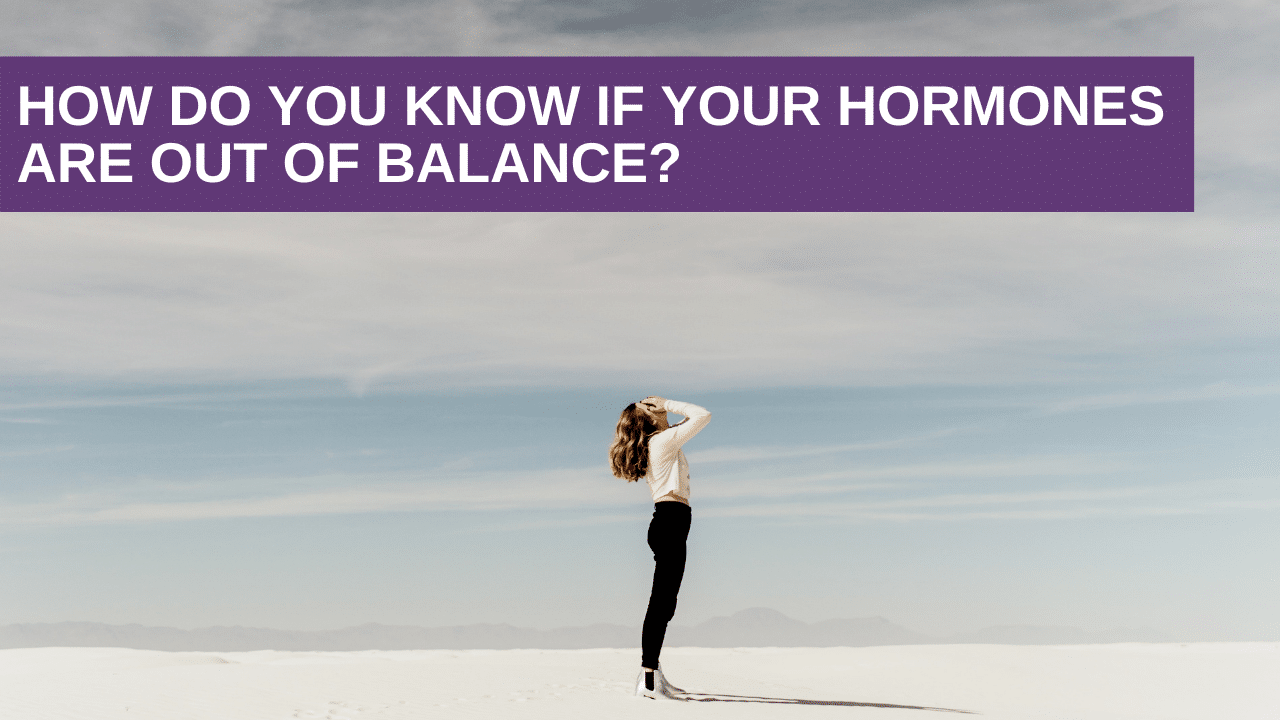How do you know if your hormones are out of balance?
When most people think about hormones, they think about their sex hormones. But all your hormones affect many areas of your health and wellbeing. Hormones and hormonal imbalances affect your adrenals, your thyroid, your pituitary, and your pancreas and more.
If your hormones are out of balance, you’ll notice particular signs and symptoms way before lab tests reveal hormone issues.
Sometimes people live with hormonal imbalance so long that they no longer notice any symptoms. But when asked about their sleep habits, energy, motivation, and moods, they realize that yes, they have symptoms that their hormones are out of balance.
So what are the symptoms you’ll see when your hormones are out of balance?
Fatigue is a common symptom of hormonal imbalance.
Fatigue can be because your thyroid, adrenals, or sex hormones are low, but it can also be because your growth hormone is low.
Sleep dysfunction is another symptom of hormonal imbalance.
If you’re not falling or staying asleep easily, that can be a sign that your hormones are out of balance.
When your sex hormones are low, you’re not going to be able to stay asleep. If your adrenals are out of balance, meaning you make cortisol at night, you’re going to have trouble falling asleep. Especially if you have a discircadian adrenal function. You may wake up in the middle of the night feeling anxious.
Weight issues can sometimes indicate that your hormones are out of balance.
Because your thyroid controls your metabolism, if thyroid hormone is low, it’s going to be difficult for you to lose weight. When your testosterone and growth hormone levels are low, you’re going to have trouble building muscle and keeping your bones dense.
If you’re estrogen dominant, meaning estradiol is higher in ratio to progesterone, then you’re going to see weight mainly in your breasts, hips, and thighs. You may also notice bloating because of water retention.
And, if your cortisol levels are high, at first you may lose weight. But eventually, you’ll gain weight, and then when your adrenals get fatigued. Your cortisol levels drop. You actually continue to hold onto that weight, which tends to be in your middle.
These physical signs, like the way you’re carrying body fat, can indicate which hormones are out of balance.
So what are some other symptoms?
If you’re finding that you’re more irritable, stressed, anxious, or depressed, that could be a sign of a hormonal issue.
Before starting my integrative practice, I noticed many women being put on antidepressants and anti-anxiety medication when it was actually hormonal imbalance. Your sex hormones affect your brain chemistry, so if your estrogen levels are low, it affects serotonin production. If progesterone is low, it affects GABA production. If testosterone is low, it affects dopamine production.
In other words, depression and anxiety can be a sign of low hormone production.
If you’re having trouble getting pregnant, you may have a hormonal imbalance.
Typically, this means that your hypothalamus is out of balance. So you’re not ovulating regularly to produce enough progesterone, and oftentimes are not producing enough estrogen. This is the same with men. If they’re not producing enough testosterone or an adequate amount of follicle-stimulating hormone to stimulate sperm production, they’ll have issues with fertility.
Now, barring mechanical issues like a malformed uterus or scar tissue blocking fallopian tubes, the majority of fertility issues have to do with hormonal balance. When women balance the hypothalamus with Genesis Gold®, they will often produce enough sex hormones to be able to conceive and carry a healthy pregnancy.
The majority of hormonal issues are hypothalamic dysfunction because the hypothalamus controls all of your hormones.
If you’re having symptoms of low thyroid, meaning tiredness, constipation, hair loss, or low body temperature, supporting your hypothalamus can help.
Hair loss can be a sign of hormonal imbalance too, including low estrogen, high testosterone, low thyroid, high cortisol, and low DHEA. And excess body and facial hair in women usually indicate unbound or excess testosterone and high DHEA.
One of the biggest complaints I see in my patients is that they’re sick and tired of being sick and tired.
Their hormonal imbalance has been going on for a long time. Oftentimes, they’ve been given medications to manage their symptoms. But what they really need is to get their hormones back into balance.
To help determine if your hormones are out of balance, you must pay attention to the symptoms that you have. It is important.
Then, be sure to address your concerns with your healthcare provider.
There are many other symptoms of hormonal imbalance. To discuss them, join me in our hormone support group which you can get access to through our free Hormone Reboot Training. That way, if you have any questions about what might be going on in your body, I can answer them for you.

Research Reference: Hypothalamic Deep Brain Stimulation Reduces Weight Gain in an Obesity-Animal Model, Hypothalamus-pituitary-adrenal axis in glucolipid metabolic disorders, Hypothalamus regulation of energy homeostasis, Gonadotropin levels can discern between hypothalamic hypogonadism, PCOS.
*Statements not reviewed by the FDA.



0 Comments